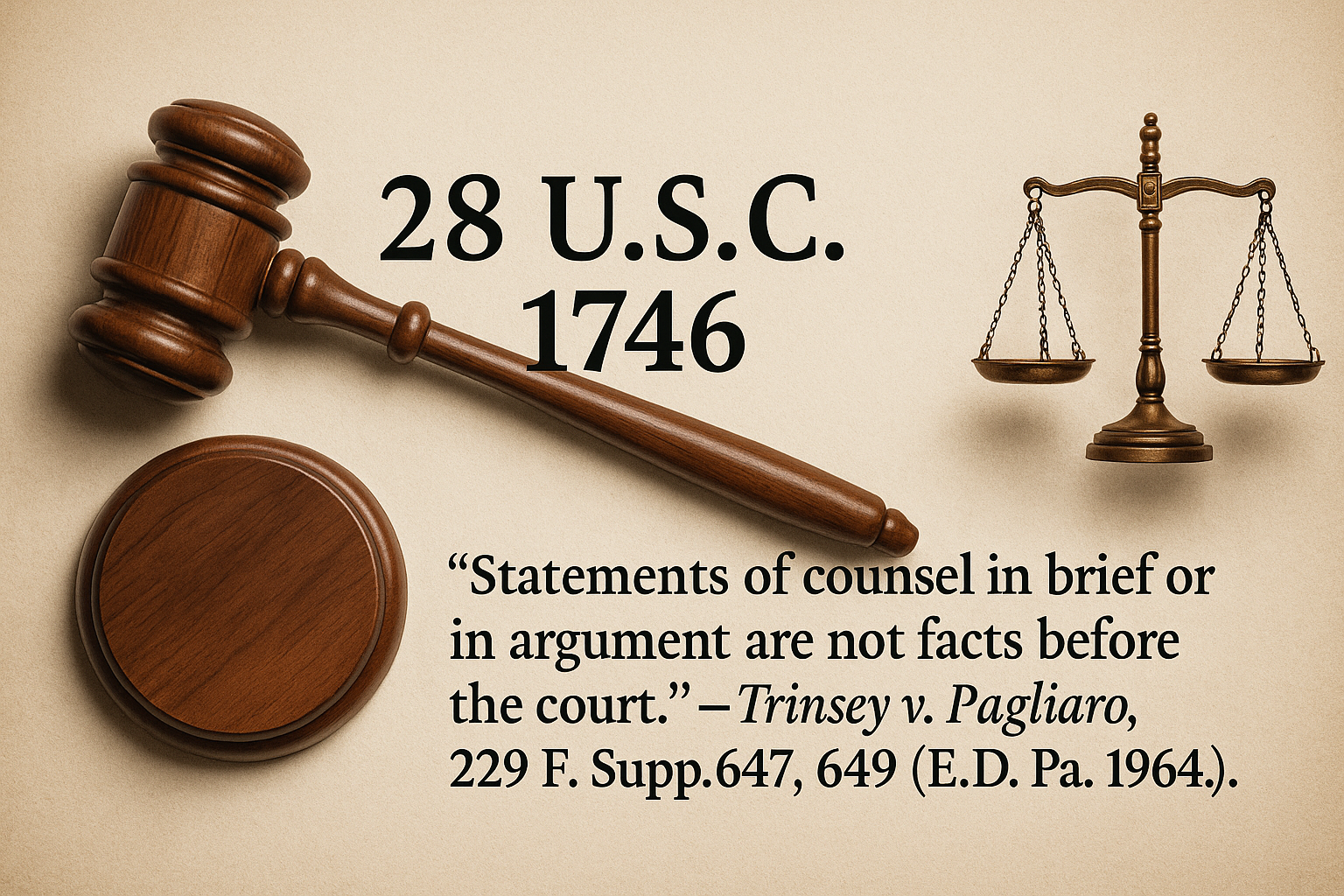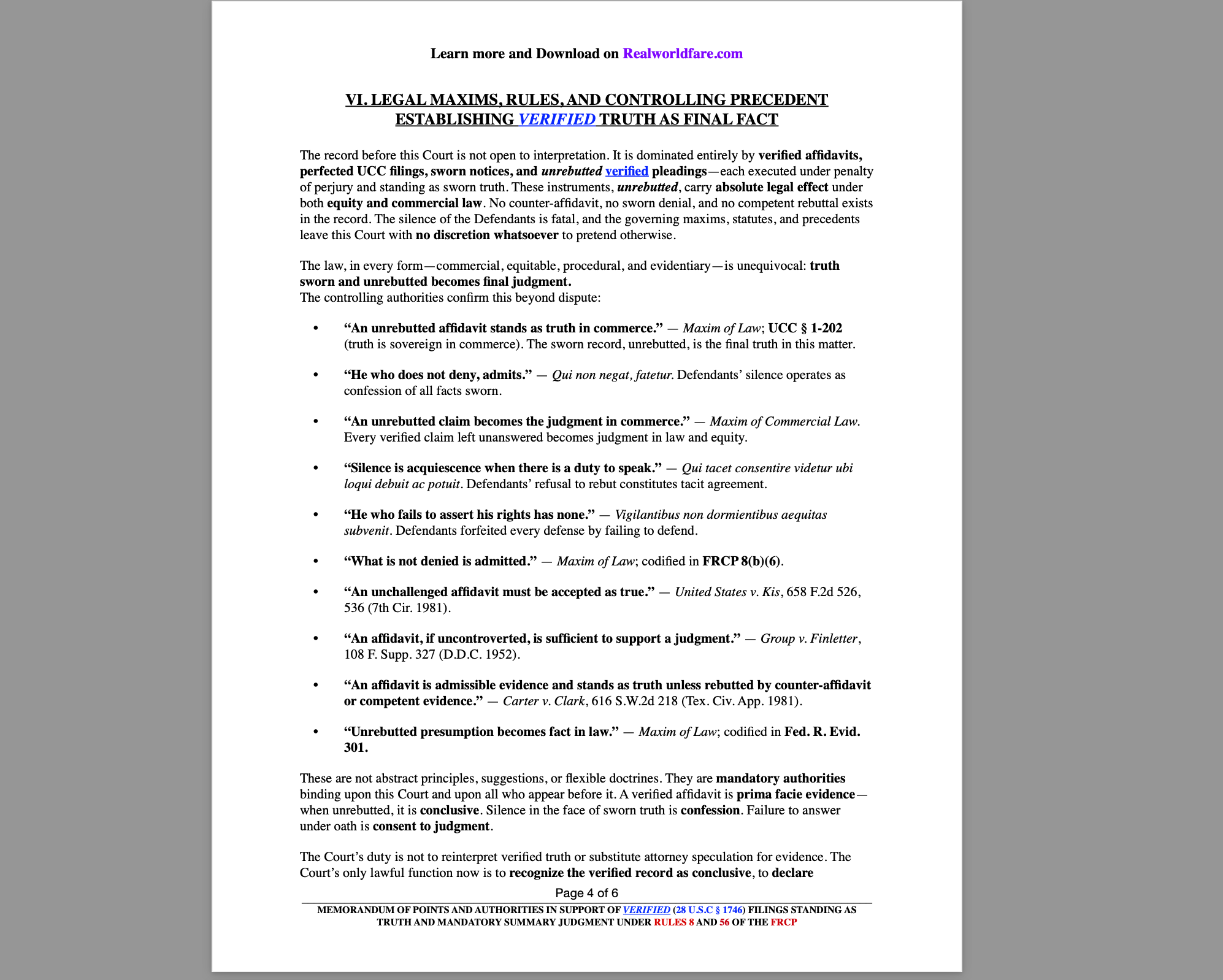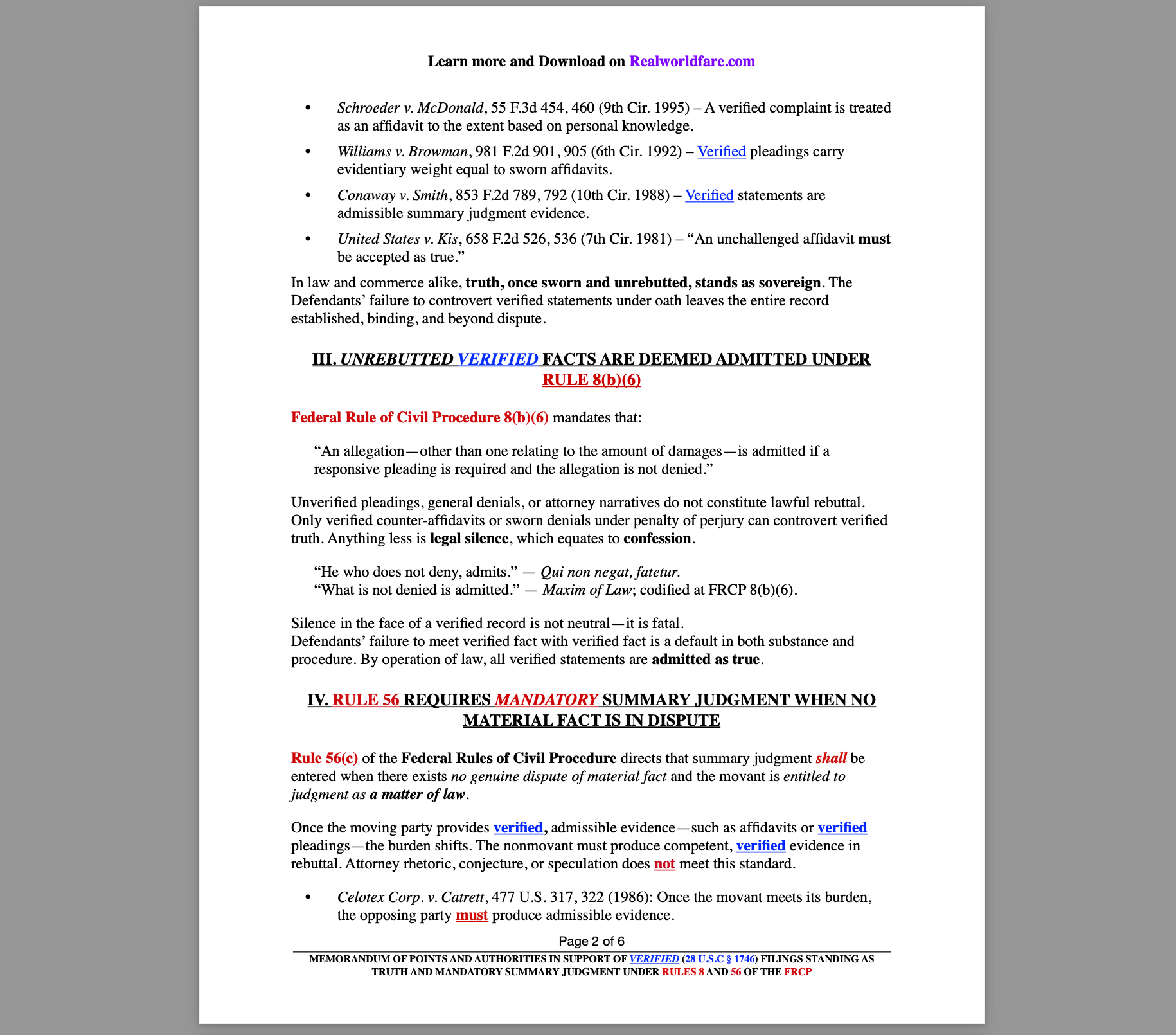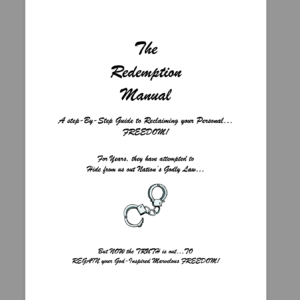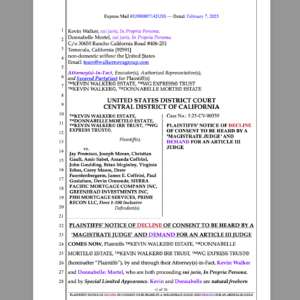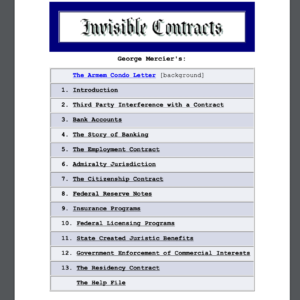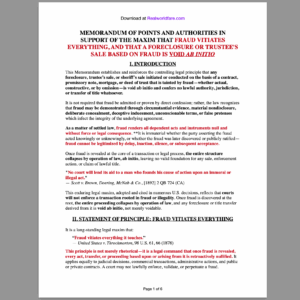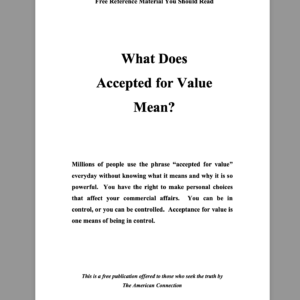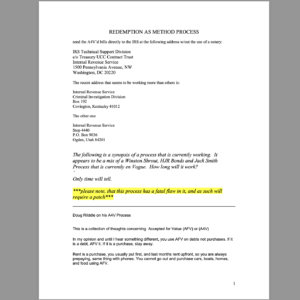In American law, truth attested under penalty of perjury is supposed to be final. Congress codified that rule in 28 U.S.C. § 1746, authorizing anyone to submit a verified declaration with the same legal force as a notarized affidavit. Once such evidence enters the record and remains unrebutted, it is not opinion—it is fact in law.
Verified Filings Are Evidence—Not Mere Pleadings
Federal courts have repeatedly confirmed that a verified pleading or affidavit carries evidentiary weight:
-
Schroeder v. McDonald, 55 F.3d 454 (9th Cir. 1995): a verified complaint functions as an affidavit if based on personal knowledge.
-
Williams v. Browman, 981 F.2d 901 (6th Cir. 1992): verified pleadings have the same force and effect as affidavits.
-
Conaway v. Smith, 853 F.2d 789 (10th Cir. 1988): verified statements may be treated as competent summary-judgment evidence.
-
United States v. Kis, 658 F.2d 526 (7th Cir. 1981): uncontroverted affidavits must be accepted as true.
-
Group v. Finletter, 108 F. Supp. 327 (D.D.C. 1952): an unrebutted affidavit alone can sustain judgment.
When facts are verified, the opposing side must meet truth with truth—verified rebuttal—not argument. The Supreme Court’s Rule 56 trilogy (Celotex v. Catrett, 477 U.S. 317 (1986); Anderson v. Liberty Lobby, 477 U.S. 242 (1986); Adickes v. Kress & Co., 398 U.S. 144 (1970)) confirms that once admissible evidence stands unrebutted, summary judgment is mandatory.
Attorney Argument Is Not Evidence
Decades ago the Eastern District of Pennsylvania made this explicit:
“Statements of counsel in brief or in argument are not facts before the court and are therefore insufficient for a motion to dismiss or for summary judgment.”
—Trinsey v. Pagliaro, 229 F. Supp. 647 (1964)
That single sentence still governs today. A lawyer’s narrative, motion, or memorandum—unless verified under oath—is hearsay, not evidence. The courtroom’s foundation collapses when judicial officers elevate unverified rhetoric over sworn fact.
Clearfield Doctrine: Statutory Acts Are “Commercial” in Nature
The Clearfield Doctrine (Clearfield Trust Co. v. United States, 318 U.S. 363 (1943)) holds that once the United States or its agents operate in commerce—issuing notes, securities, contracts, or enforcing statutory obligations—they act as commercial participants, not as sovereigns. Every statute regulating property, debt, or obligation functions within that commercial framework. Judges and agencies administering such matters are therefore bound by the same evidentiary and good-faith standards as private actors. Ignoring verified truth in that context breaches both commercial and constitutional law.
Constitutional and Statutory Liability
When a tribunal disregards verified evidence and substitutes unverified opinion, it acts ultra vires—beyond lawful authority—and violates:
-
Due Process and Equal Protection guarantees;
-
Article III limits on jurisdiction; and
-
statutory duties enforceable under 42 U.S.C. § 1983, Bivens v. Six Unknown Agents (403 U.S. 388 (1971)), and 5 U.S.C. § 706(2)(C) (agency or judicial action “in excess of statutory jurisdiction”).
No official, judge, or clerk enjoys immunity for acts performed without jurisdiction or in deliberate disregard of verified fact.
The Rule Is Simple
✅ Verified truth stands as law.
❌ Unverified filings carry no weight.
⚖️ Summary judgment is mandatory when no factual dispute remains.
Anything else is void ab initio—a nullity that erodes public trust and the rule of law itself.
When the judiciary honors verified truth, justice functions. When it ignores it, jurisdiction collapses.
